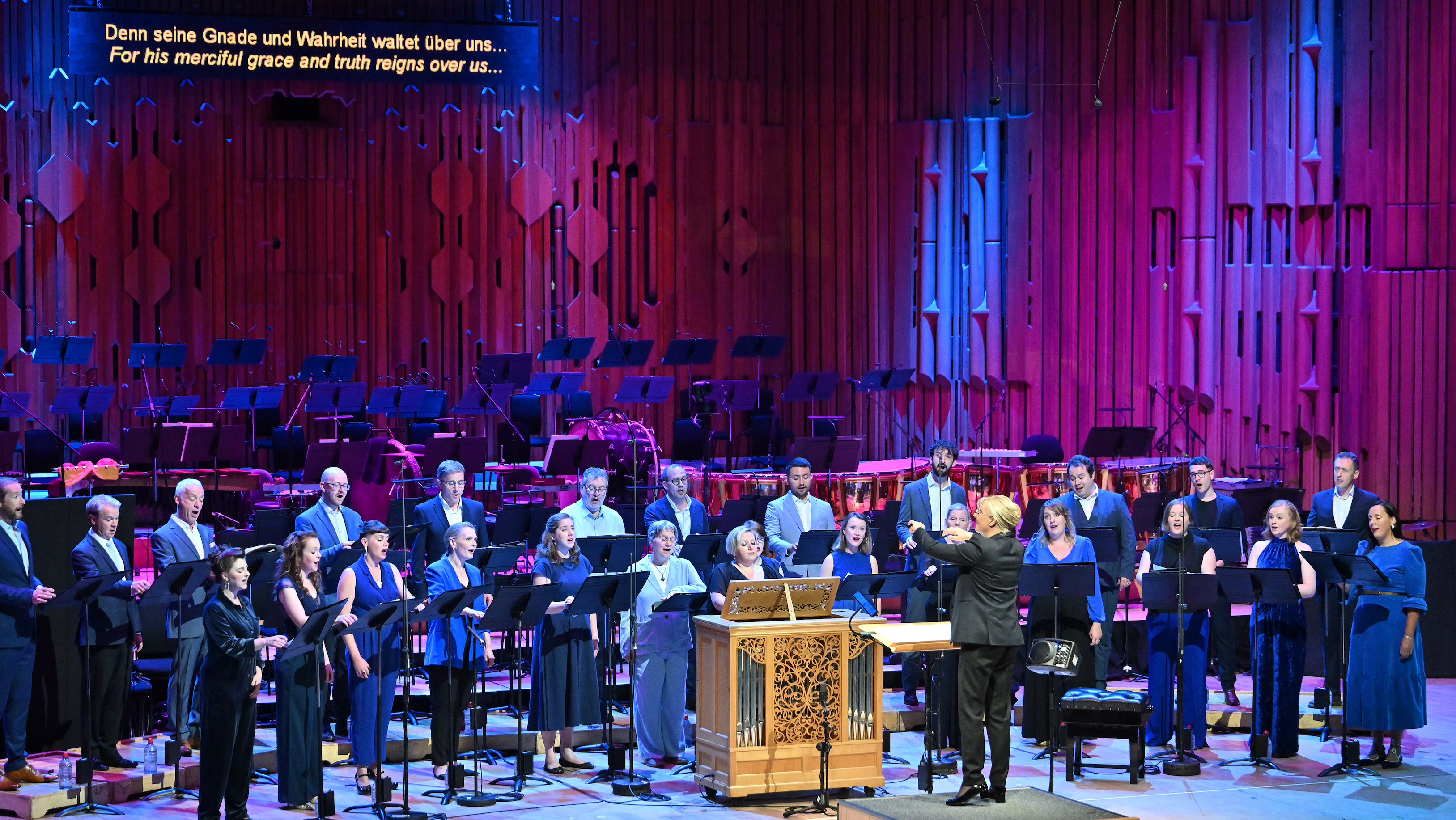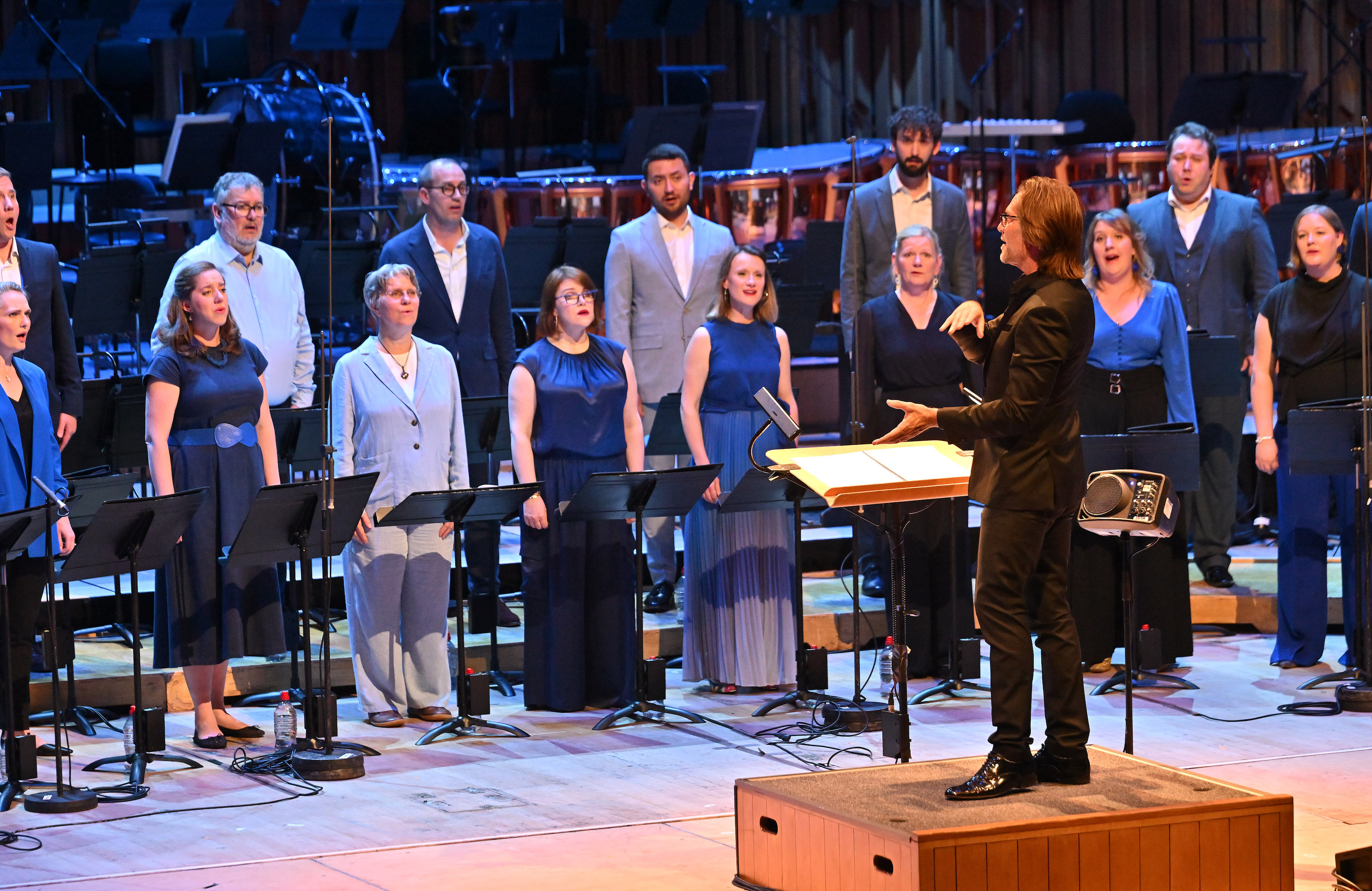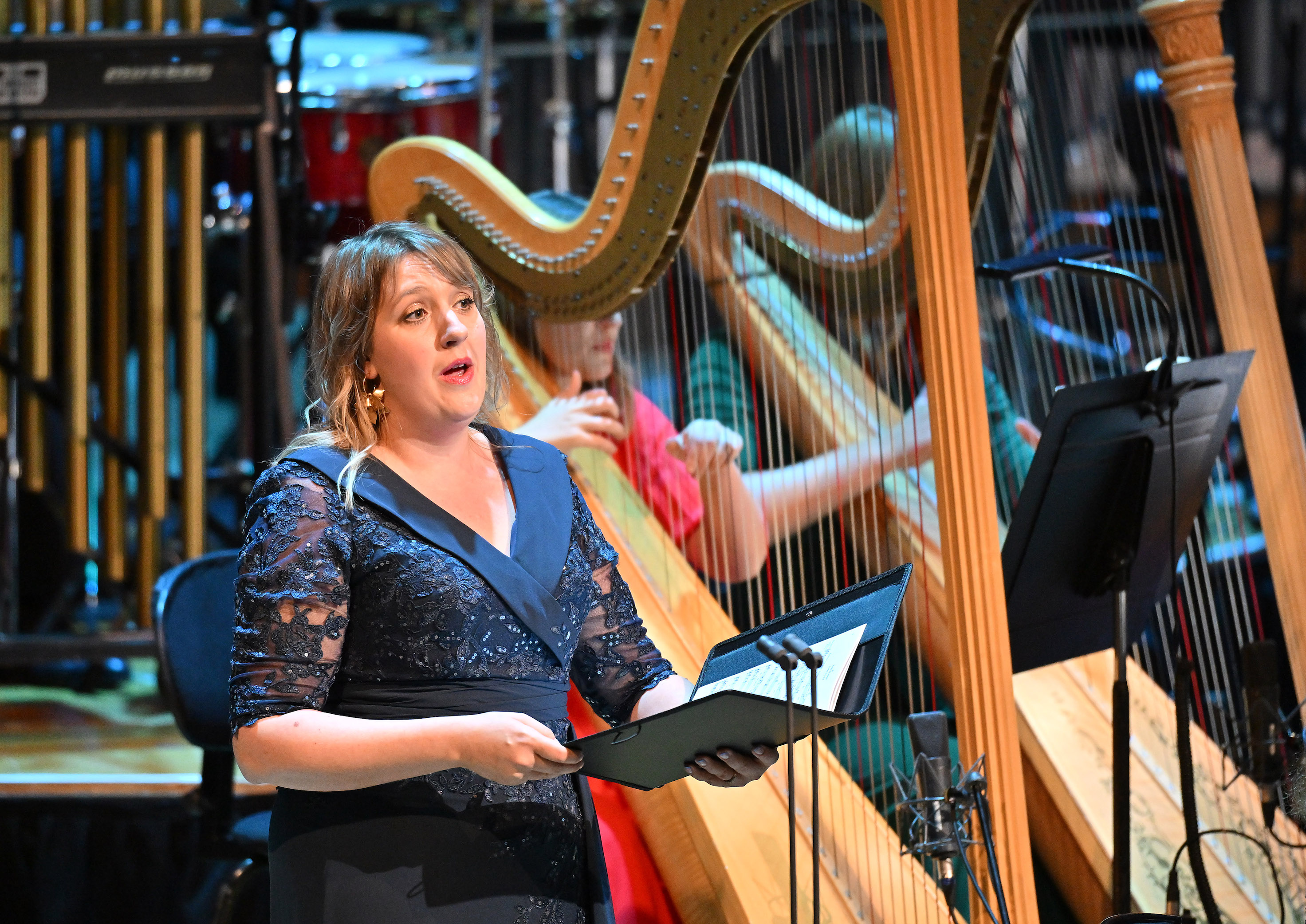“Bold, ambitious, and good for the sector.” So said Charlotte Moore, the BBC chief content officer, who currently earns £468,000, in March last year as she defended plans to close the BBC Singers as part of a package of swingeing musical cuts masked – as usual – as a high-principled strategic rethink.
Well, what a difference a year, or rather 18 months, makes. Last night, the world’s first permanent radio choir celebrated its centenary – the “Wireless Choir” began to broadcast from Savoy Hill on 2 October 1924 – at a packed Barbican Hall. It greeted the great survivors’ arrival with the ecstatic whoops you might expect at a (Taylor) Swiftian event. If Moore, and her fumbling axeman Simon Webb (head of orchestras and choirs), were there, they didn’t show their faces.
Instead, the relentlessly jovial presentation of the birthday show by Clive Myrie and Georgia Mann glossed over the recent events that almost everyone in the audience knew. A loud international outcry by many of the world’s greatest musicians, and 140,000 protest signatures, forced Moore and the top brass to backtrack. In February this year, a partnership with the VOCES8 Foundation confirmed the Singers’ uncut future as a full-time choir at the heart of the BBC’s musical offering. 
A stunningly accomplished pre-interval performance of Schoenberg’s 1907 Friede Auf Erden – its hauntingly lovely, but fiendishly demanding, contrapuntal writing tracing a high-wire journey between late-Romantic harmony and atonality – would in some countries be enough to guarantee another century of public funding. The Singers’ scaled this true summit of the choral repertoire not just with virtuosity but feeling and nuance to match.
But we had more, much more, from a beautifully controlled and balanced Bach motet, “Lobet den Herrn, alle Heiden”, to a thrilling cameo from the inspirational South African cellist-vocalist Abel Selaocoe. He blended his voice and instrument with the sounds of the choir into a chant-hymn “search for healing”, Nagula. Sofi Jeannin, the Singers’ chief conductor, led from the podium for most items, with guest turns from Owain Park, Nicholas Chalmers and Eric Whitacre (pictured below). The BBC Symphony Orchestra stylishly supported the choir for their non-a cappella numbers. 
Bernstein’s Chichester Psalms, packed with punch and drive from the BBCSO brass and percussion, and uplifted by a soulful alto solo from Eleanor Minney (pictured below), might have shown a few Whiteacre acolytes how traditional sacred music can hug modern idioms close with full-bodied passion. Here, as elsewhere, the Singers’ displayed a terrific balance of high and low voices, consistent clarity of diction and a sharp-edged togetherness, along with an expressive range that let us hear Bernstein’s mode as a brash Broadway balladeer, as well as his rapt homage to both Hebrew scripture and the big-choir cathedral sound.
Specially commissioned for the centenary, Inform, Educate, Entertain by the Singers’ Associate Composer Roderick Williams was a clever, rousing – and often rather funny – setting of the sonorous words of the BBC Royal Charter in the ceremonial style of an epic Walton film-score. Or perhaps Carmina Burana comes to W1A: Williams’s witty orchestral word-painting, alternately grandiose and lyrical, did reveal the aspiration and idealism behind those pompous bureaucratic formulae. After the BBCSO had given them a breather with an orchestral interlude – Anne Dudley’s finely crafted, Ravel-tinged Decadence Waltz from the 2003 Evelyn Waugh adaptation Bright Young Things – we returned to Broadway for a new suite by ace arranger Iain Farrington. 
Let’s hope that the glass is now set fair for the Singers’ long-term prospects. We didn’t really need extra proof of their skill and their scope, but the Barbican party provided it in bucketloads. Like any large, labyrinthine body, the BBC embraces competing factions and interests, which is why broad-brush rhetoric about “dumbing-down” sometimes doesn’t help. Allies within Broadcasting House need encouragement, and the Singers’ survival shows that battles for the Corporation’s commitment to the arts can be fought, and won.













Add comment